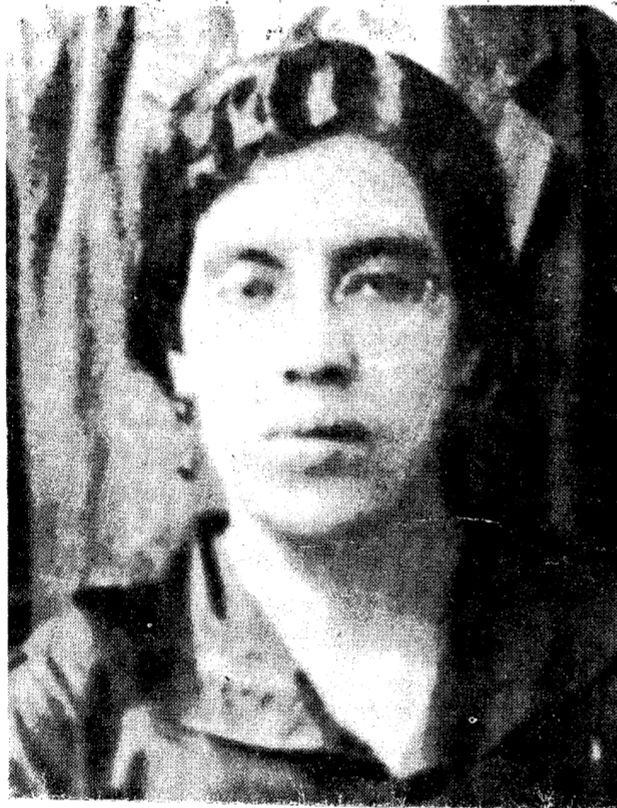María Arcelia Díaz (1896-1939): feminista, trabajadora textil, líder sindical y pionera de políticas sociales y laborales en Zapopan
DOI:
https://doi.org/10.29340/en.v4n8.208Keywords:
feminism, working class, union struggle, historical temporalitiesAbstract
In this essay, I interweave different materials (audio, visual, musical, maps and statistical data) with my historical interpretation on the importance con María Arcelia Díaz (1896-1939) as a feminist, textile worker, union leader and pioneer of social and labor policies in Zapopan and the resonance of her struggles in our present time. I wove the visual, text and audio materials in my historical narrative to reconfigure Díaz’s time lived along with her hushed and quieted experience of time.
Downloads
References
Alonso, Ana M. (1995). Thread of Blood: Colonialism, Revolution, and Gender on Mexico’s Northern Frontier. Tucson: University of Arizona Press. https://doi.org/10.2307/j.ctv1mgmcf9 DOI: https://doi.org/10.2307/j.ctv1mgmcf9
Arriola, Enrique (1975). “Obreras textiles”. Historia Obrera, núm. 5, pp. 1-17.
Barragán, Leticia y Amanda Rosales (1975). “Congresos Nacionales de Obreras y Campesinas”. Historia Obrera, núm. 5, pp. 24-44.
Brenner, Anita (2010). Avant-garde Art & Artists in Mexico: Anita Brenner’s Journals of the Roaring Twenties. Austin: University of Texas Press.
Bortz, Jefferey (1997). “Without Any More Law Than Their Own Caprice: Cotton Textile Workers and the Challenge to Factory Authority During the Mexican Revolution”. International Review of Social History, vol. 42, núm. 2, pp. 253-288. https://doi.org/10.1017/S0020859000114907 DOI: https://doi.org/10.1017/S0020859000114907
— (2008). Revolution Within the Revolution: Cotton Textile Workers and the Mexican Labor Regime, 1910-1923. Stanford: Stanford University Press. https://doi.org/10.2307/j.ctvqsdvkk DOI: https://doi.org/10.2307/j.ctvqsdvkk
Carr, David (2014). Experience and History: Phenomenological Perspectives on the Historical World. Oxford: Oxford University Press. https://doi.org/10.1093/acprof:oso/9780199377657.001.0001 DOI: https://doi.org/10.1093/acprof:oso/9780199377657.001.0001
Castro Palmeros, Margarita, Adriana Villa y Silvia Venegas (1982). “Indicios de la historia de las relaciones laborales en Jalisco, 1900-1936”, en IV Concurso sobre Derecho Laboral Manuel M. Diéguez. Guadalajara: uned, pp. 207-507.
Davis, Natalie Z. (1999). Mujeres de los márgenes. Tres vidas del siglo xvii. Madrid: Cátedra / Universidad de Valencia-Instituto de la Mujer.
Dorantes, Alma, María G. Castillo y Julia Tuñón (1995). Irene Robledo García. Guadalajara: Universidad de Guadalajara / Instituto Nacional de Antropología e Historia.
Fernández Aceves, María T. (2006). “El trabajo femenino en México, 1920-1970”, en G. Gómez-Ferrer, G. Cano, D. Barrancos y A. Lavrin (ed.), Historia de las mujeres. España y América Latina. Del siglo xx a los umbrales del xxi, vol. 4. Madrid: Cátedra, pp. 845-859.
— (2014). Mujeres en el cambio social en el siglo xx mexicano. México: Siglo xxi / ciesas.
Fernández, Aurora (1958). Mujeres que honran la patria. México: Imp. Zavala.
Gamboa, Federico (1903). Santa. México: Botas.
Gabayet, Luisa (1987). “Intentos de asesinato en contra de María A. Díaz, importante sindicalista”. Revista Encuentro, vol. 4, núm. 3, pp. 117-119.
Hernández, Ana María (1940). La mujer mexicana en la industria textil. México: Tip. Moderna.
Keremitsis, Dawn (1997, 17 de abril). María Arcelia Díaz (1896-1939): Union Leader, Feminist, and Defender of Revolutionary Legislation. Ponencia presentada en la Latin American Studies Association. Guadalajara.
Maynes, Mary J., Jennifer L. Pierce y Barbara Laslett (2008). Telling Stories: The Use of Personal Narratives in the Social Sciences and History. Ithaca: Cornell University Press.
Moreno, Antonio (direc.) (1932). Santa. México: Compañía Nacional Productora de Películas/ Juan de la Cruz Alarcón (prod.).
Padilla Paz, Arcelia E. (2020). La construcción de la experiencia lésbica en Guadalajara (1970-2020) (tesis de doctorado). Guadalajara: ciesas-Occidente. http://doi.org/10.13140/RG.2.2.32567.14242
Ricœur, Paul (2004). Memory, History, Forgetting. Chicago: University of Chicago Press. https://doi.org/10.7208/chicago/9780226713465.001.0001 DOI: https://doi.org/10.7208/chicago/9780226713465.001.0001
Sewell, William H. (2005). Logics of History. Social Theory and Social Transformation. Chicago: University of Chicago Press. https://doi.org/10.7208/chicago/9780226749198.001.0001 DOI: https://doi.org/10.7208/chicago/9780226749198.001.0001
Vaughan, Mary Kay (2019). Retrato de un joven pintor. Pepe Zúñiga y la generación rebelde de la ciudad de México. Aguascalientes: Universidad Autónoma de Aguascalientes, ciesas.

Published
Issue
Section
License
Copyright (c) 2021 Encartes

This work is licensed under a Creative Commons Attribution-NonCommercial 4.0 International License.
Aviso de derechos de autor
- Los autores/as conservan los derechos de autor y ceden a la revista el derecho a la primera publicación con el trabajo registrado con la licencia de atribución Creative Commons, que permite a terceros utilizar lo publicado siempre que mencionen la autoría del trabajo y a la primera publicación en esta revista
- Los autores/as pueden realizar otros acuerdos contractuales independientes y adicionales para la distribución no exclusiva de la versión del artículo publicado en esta revista (por ej. Incluirlo en un repositorio institucional o publicarlo en un libro) siempre que indiquen claramente que el trabajo se publicó por primera vez en esta revista.
El material puede ser copiado, distribuido, comunicado, ejecutado públicamente. Se pueden hacer obras derivadas de él. No se puede utilizar para fines comerciales. Se debe reconocer y citar la obra de la forma en que tú especifiques.









